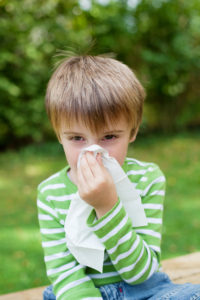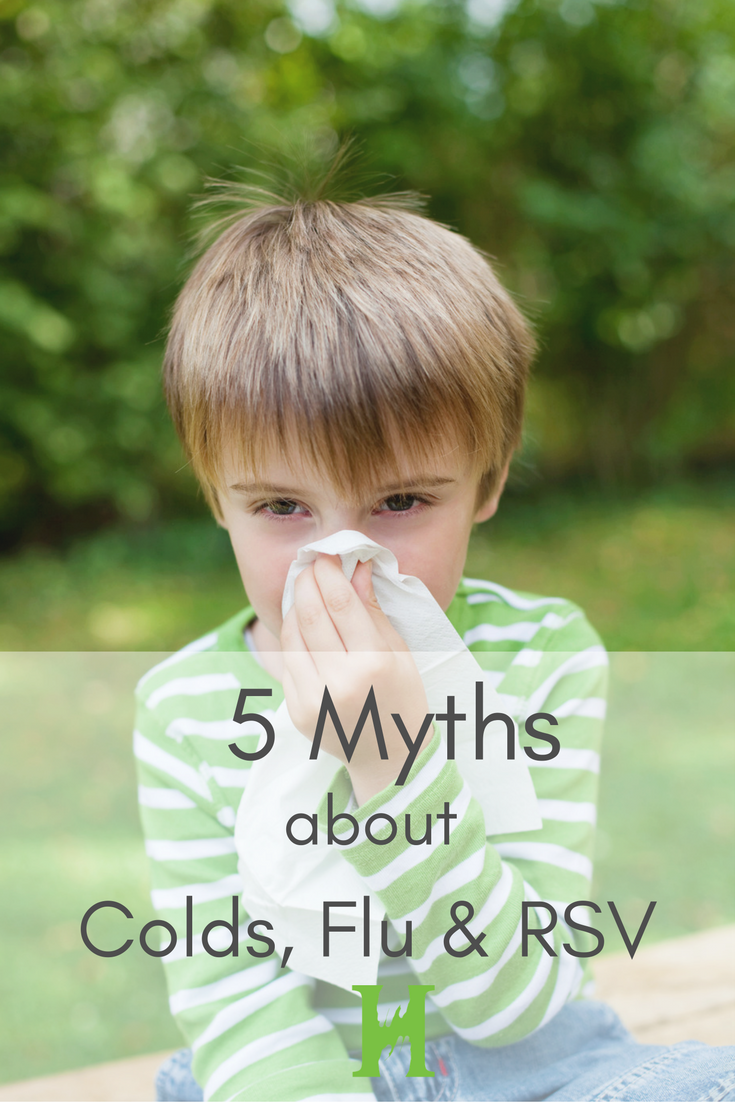 UPDATED APRIL 2021
UPDATED APRIL 2021
Cold, flu and RSV season is here, and the chances of catching and spreading viruses and infections increases as kids go to school, daycare, and as families get out and about. NICU parents dread this time of year when we have to weigh the risks of every trip outdoors and every visitor who walks through our front door.
The threats of cold and flu are very real. NICU parents know first-hand the sort of risks our children face with each respiratory infection. But we also admit that until our family faced this risk we may have known very little about it. For example, most of us had never even heard of RSV until we were warned about its devastating effects.
Now that we know, it is our job to educate others and advocate for our families. But how do you educate skeptical family and friends? How do you combat accusations that you’re being too protective and worrying too much? You fight with the facts. And the facts are on your side!
5 Myths about Colds, Flu, and RSV
Colds and Flu Aren’t Very Serious
For vulnerable children and adults, flu can lead to hospitalization or even death. NICU graduates are at a higher risk for serious flu complications. The best way to prevent the flu is by getting vaccinated each year. Children can be vaccinated at 6 months actual age.
Your Baby Needs to be Exposed to Germs to Build their Immune System
Babies’ immune systems mature with time, not exposure. The best way to avoid complications and protect a maturing immune system is to not get infected in the first place.
You Can Only Catch RSV Once
By age two most of us have been exposed to the Respiratory Syncytial Virus. We will be infected and reinfected many times over the course of our lifetime. But after the age of two, the risk of complications from RSV infection go down for most children. This is both because their immune systems are more mature and because their airways have gotten bigger.
Synagis® Shots Will Keep My Baby from Catching RSV
Synagis® may make an RSV infection less severe, but it will not prevent it. Synagis® is not a vaccine. When we get a vaccination our immune system is exposed to inactivated (dead) viruses. Vaccines create active immunity by teaching our bodies how to respond by creating our own antibodies. Synagis® is an injection of antibodies that can slow down the RSV virus but not prevent it. This is called passive immunity. Antibodies from Synagis® injections weaken and disappear over time. That is why the shots are given monthly during RSV season.
Vaccinations Make You Sick
Vaccines use dead and inactivated viruses. They can not reproduce and cause infection. What you experience after a vaccination is your immune system responding; it is not an infection.
Please keep these five myths about RSV in mind when educating your friends and family this cold and flu season. The more we educate and inform those around us about the dangers of RSV, the safer our babies will be!
For more information on RSV awareness:
- 5 Things Every NICU Parent Should Know about RSV
- 5 Ways to Prevent Respiratory Infections
- The Gap Baby: An RSV Story


 Virtual support groups allow families to access support at all stages of the NICU journey, from the comfort of your own home.
Virtual support groups allow families to access support at all stages of the NICU journey, from the comfort of your own home.